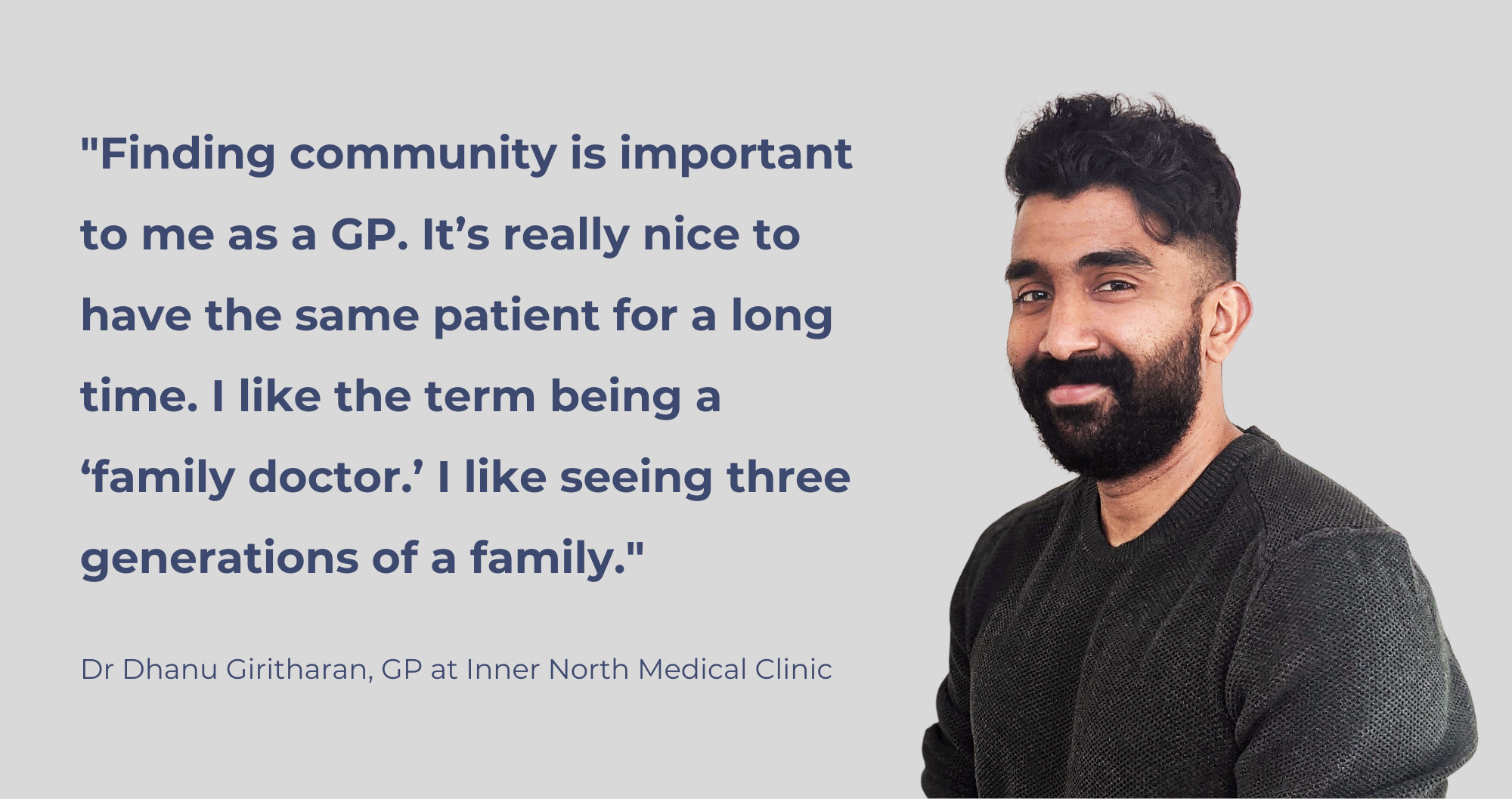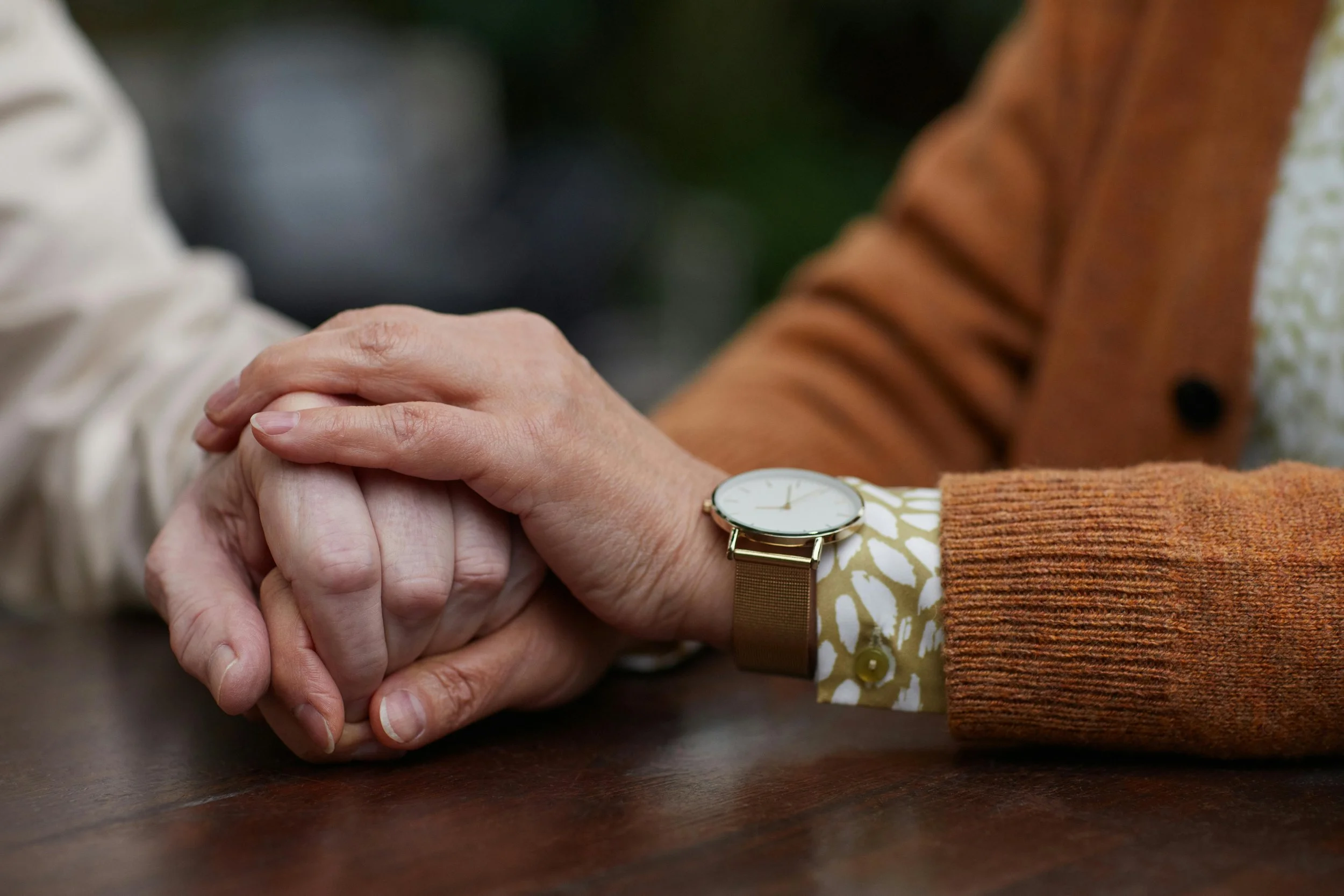More Than Medicine: Dr Dhanu on Building Community, Ethics, and Finding Meaning in GP Work
A love of community, curiosity, and connection as led Dr Dhanu to a career in General Practice. From aged care to ethical decision-making, his work is grounded in compassion, reflection, and a deep respect for the people he cares for.
What inspired your move into medicine and to make it your career?
I kind of fell into medicine actually. For me it was a toss up between three things - doctor, teacher, or aeronautic engineering. It was a week before final exams were due and I was having a chat with mum and dad - I said ‘what’s next?’ I thought that I wanted a career in sport (I loved playing cricket, and still do) - but a few injuries derailed that. I studied hard in my exams, got good marks, and an offer for medicine in Melbourne. Now I’ve been a doctor for 12 years!
As a local GP you see people through every stage of life, from childhood to old age. How does that continuity of care influence your perspective on health and wellbeing?
Finding community is important to me as a GP. It’s really nice to have the same patient for a long time. I like the term being a ‘family doctor.’ I like seeing three generations of a family. I used to work up in Wallan and Kilmore, really rural areas seeing really big families, and I enjoyed that. The only reason I left was because it was an hour drive to work from my home here in Brunswick! I like working in the inner north now, because it’s right down the road, but also because the community has become more family oriented in the last 5 years. I often see my patients around, at the park or the pub - I like that.
Is there a particular area of medicine that really lights you up, or that you feel most connected to?
Yes - aged care, and palliative or end of life care.
When I worked in Wallan, there were a few really high dependency nursing homes in the area. My boss at the time asked me if I would be interested in helping out at some nursing homes with him. I said yes and we shared the patient load. I went in at least once per week if not twice - I enjoyed connecting with people there. You hear about people going into nursing homes and they deteriorate because of poor access to health care. I think the elderly are often forgotten. A lot of the time you have a cup of tea with them and it makes a huge difference to their day, and their wellbeing. They say that treatment for isolation is connection, and I saw that.
In terms of end of life care, I met a patient out in Wallan, he was young and terminally ill. His partner would bring him in and we would all get along really well. I was able to help him through end of life care and also support his partner through a very difficult period. This patient was also the first person who asked me about medicinal cannabis as a way to help his pain management, and inspired my journey into plant-based medicine.
VAD (Voluntary Assisted Dying) wasn’t available to him back then, and in 2019, doctors weren’t legally allowed to present it as an option to patients (that’s changed now in Victoria). Helping this patient navigate their end of life experience and discuss with them a more dignified option, is what drew me into this area.
You’re also busy completing a Master of Bioethics. How has that shaped the way you approach care and decision-making in your practice?
Studying this degree, it kind of makes you stop and think - sometimes when you do things as a GP for long enough, or over and over - you may fall into auto pilot. Studying bioethics, you learn it’s always case by case. You appreciate the individual in front of you, and you are more present. It kind of grounds you. You focus more on the reason someone has accessed care, and their decision making process.
Bioethics also covers a range of things like terminations, cloning, end of life care. We discuss questions like ‘does the patient have all the information they need?’ ‘Are they fully informed?’ ‘What has influenced them?’
How do you apply these sorts of decision-making tools practically as a GP? How do you help your patients navigate significant, life changing decisions?
Studying bioethics gives you a more holistic understanding of both the ‘for’ and ‘against’ positions, encouraging you to appreciate all sides. In a way, it is on you to ensure they are making a fully informed decision. To discuss together the hardest question of all - ‘why?’ ‘Why do you want to do this?’
Whether it’s a question about having a vasectomy, accessing gender affirming care, or receiving end of life care, we ask what the person's goals are, and why they have these goals. We need to explore the reason, and it needs to be verbally stated - it’s not as simple as prescribing an antibiotic for an infection - it’s a significant turning point in their lives, which you have to navigate with them. So it’s a fine line between being the gatekeeper but also saying ‘the gate is open and I’m not the troll under the bridge.’ I’m assisting you but let’s explore it more together to make sure you have all the information you need.
How do you cope with these heavier aspects being a GP, such as navigating aged care or end of life care?
I believe in putting yourself first. If you’re happy, you can better focus on the needs of others. I have a good balance in my life. I still play cricket, I have two lovely children that I play with all the time. They say ‘resentment is a product of unaddressed grief and trauma’, and I believe this. Put yourself first. Make sure your needs are met and then you are equipped to help others.
What do you find most rewarding about the work you do today?
Honestly, the community. As I mentioned earlier, seeing my patients on the streets or in the playground - there’s something quite nice about it. You are part of the community. I really enjoy being a family doctor who lives in this area.
If you weren’t working in medicine, what do you think you’d be doing instead?
I’d be a teacher, for sure. I’d be a primary school teacher. But I’m really happy being a GP. Of all the medical specialties, it suits me the best. I’m a better person for it. I enjoy having days off with my kids. Actually, on second thought - if I could really pick anything, I’d love to be a house husband. I’d love to stay at home, play with my kids and cook slow cooked meats all day. That would be the dream!
Book in with Dr Dhanu, or another one of our fabulous GP’s on our team page.


